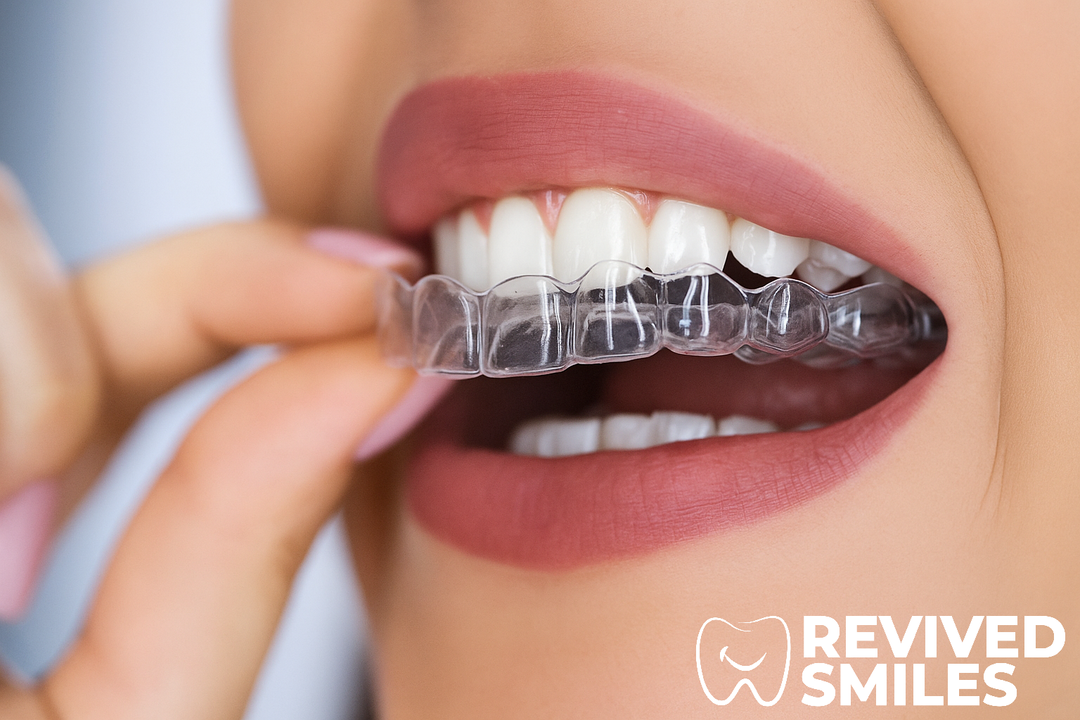Partial Dentures vs. Full Dentures: Which Option Is Right for You?

When it comes to fixing your smile and oral function, the choice between complete and partial dentures is a big decision. Both serve a purpose in replacing missing teeth but the differences can make one better for you than just one or more teeth in the other. Let’s break it down to help you decide.
What are Dentures?
Dentures are custom made, removable dental appliances that replace missing teeth and restore oral function. They consist of artificial teeth that help with chewing, speaking and aesthetics, so patients feel confident and comfortable.
There are two types of dentures:
-
Partial Dentures: These replace one or more missing teeth and are attached to your remaining natural teeth using artificial teeth to fill in gaps.
-
Full Dentures: These replace all teeth in either the upper or lower arch, with artificial teeth attached to a plastic base that fits over the gums, restoring full function and appearance.
The Importance of Dentures
Tooth loss affects more than dental health than just your smile. Missing teeth can cause problems with eating, speaking, and even oral health. Dentures help prevent further oral health issues such as:
-
Shifting Teeth: Remaining teeth can shift into gaps and become misaligned.
-
Bone Loss: Teeth stimulate the jawbone; without them bone density decreases over time.
-
Gum Health: Gaps can trap food and plaque, increasing the risk of gum disease.
Benefits of Dentures
Improved Oral Function
Dentures provide a comprehensive solution for restoring dental function and overall oral health. They serve as an effective replacement for missing teeth, preventing complications such as shifting of natural teeth and bone loss.
By filling in gaps, dentures contribute to maintaining proper alignment, which is crucial for long-term dental health. Beyond functionality, they also offer the benefit of protecting surrounding teeth from unnecessary strain caused by uneven pressure during biting or chewing.
With options for partial or complete dentures, they cater to a wide range of dental needs, ensuring that individuals regain comfort and confidence in their daily lives.
Aesthetic Appeal

Dentures can greatly enhance your aesthetic appeal, restoring a natural-looking smile and boosting self-confidence.
Partial dentures are designed to match the color and shape of your surrounding natural teeth, creating a seamless and natural-looking smile. Complete dentures are custom-crafted to match your natural tooth shape and color, ensuring a natural-looking smile that enhances your overall facial appearance.
By replacing missing teeth, dentures also support the facial muscles, preventing a sunken or sagging appearance and promoting a more youthful and vibrant look. Whether you opt for either partial dentures replacement or complete dentures, the aesthetic benefits are significant, helping you feel more confident in your smile.
Understanding Partial Dentures
What are Partial Dentures?
Partial dentures are removable appliances that fill the gaps left by one or more missing teeth. They consist of replacement false teeth attached to a supportive base, which is then secured to the remaining natural teeth, often using metal or acrylic clasps for retention. Flexible partial dentures made from materials like Valplast, TCS, or DuraFlex are popular because they are comfortable and aesthetic.
Pros of Partial Dentures
-
Preservation of Natural Teeth: Partial dentures work with your existing teeth, keeping them healthy and in position.
-
Cost Effective: Generally less expensive than full dentures, they are a more affordable option for partial tooth replacement, especially for individuals with overall good oral health and only a few missing teeth.
-
Easier to Adapt: Adapting to partial dentures is often easier than full dentures as they don’t involve a full arch replacement.
-
Customizable Appearance: Flexible options look natural and fit better, more comfortable and aesthetic.
-
Durability: With advancement in Flexible Partial Dentures, They are incredibly durable even being able to withstand getting run over by a car.
Cons of Partial Dentures
-
Clasp Visibility: Depending on the design metal clasps may show when you smile or speak. But at the same time, not all partial dentures have metal clasps, Flexible Partial Dentures do not generally have this problem
-
Ongoing Adjustments: Partial dentures may need to be adjusted periodically as your mouth changes.
-
Dependence on Natural Teeth: The health of your remaining teeth is key to the success of dental prosthetics like partial dentures. Any issues with those teeth can affect the fit and function.
-
Durability: While flexible partial dentures are comfortable they may not be as durable as traditional metal based options.
Who Should Consider Partial Dentures to Replace Missing Teeth?
Partial dentures are used for people who have lost some teeth but still have several natural teeth remaining. They are a practical solution for those who want to ensure their natural teeth remain intact while filling gaps in their smile.
Understanding Full Dentures
What are Full Dentures?
Full dentures, also known as complete dentures, replace all the teeth in the front upper jaw or lower jaw. They sit on the gum and are custom made to fit your mouth for maximum comfort and aesthetics.
Modern denture technology has improved the fit and appearance of full dentures, giving patients a more natural smile.
Pros of Full Dentures
-
Total Replacement: Full dentures serve as replacement teeth for those who have lost all their teeth in an arch.
-
Better Aesthetics: They support the lips and cheeks and prevent the sunken look of tooth loss.
-
Custom Fit: Made to fit each patient’s mouth, full dentures fit snug and natural.
-
Better Function: Full dentures restore chewing and speech clarity.
Cons of Full Dentures
-
Longer Adjustment Period: It takes time to get used to the feel and function of full dentures.
-
Adhesive Dependence: Some patients need denture adhesive for extra stability, especially when saliva production is insufficient. Dentists should be consulted to determine the necessity of denture adhesives for proper support of full dentures.
-
Bone Loss Over Time: Without the stimulation of natural teeth the jawbone can deteriorate and affect the fit of the dentures.
-
Frequent Relines: As the jawbone changes full dentures may need to be adjusted or replaced.
Who Should Consider Full Dentures?
Full or partial dentures are the solution for those who have lost all their teeth in one or both arches. They are also for those who have remaining teeth that are unhealthy or insufficient to either wear dentures or support partial dentures.
Cost Comparison
Dentures cost varies widely depending on materials, customization and complexity:
-
Partial Dentures: $600 to $2,500
-
Full Dentures: $600 to $15,000
Additionally, dental implants can be considered as a modern solution for supporting dentures, offering greater stability and a more natural feel. However, they come with higher initial costs, which can range from $3,000 to $5,000 per implant.
Factors Influencing Cost
-
Materials: Premium materials like flexible resin or high quality acrylic will cost more.
-
Customization: Fully custom made dentures for comfort and aesthetics will cost more.
-
Location: Costs vary depending on where you live and your dental provider.
-
Additional Procedures: Preparatory procedures like tooth extractions will add to the overall cost.
While cost is important, choosing a good dental provider and high quality materials will give you a few teeth with better results and longer life.
Maintenance and Lifespan
Caring for Partial Dentures
-
Lifespan: Up to 10 years with proper care.
-
Daily Care: Clean your dentures daily with a soft brush and non abrasive cleaner.
-
Storage: Store dentures in water or denture solution when not in use to prevent drying out.
-
Regular Checkups: Visit your dentist regularly to ensure your dentures fit and your natural teeth are healthy.
Caring for Full Dentures
-
Lifespan: 5 to 10 years.
-
Relines and Repairs: As your mouth changes you may need relines and repairs.
-
Cleaning: Like partials full dentures need to be cleaned daily to maintain hygiene and prevent staining.
-
Avoid Harsh Cleaners: Use products designed for dentures to prevent damage.
Proper care will extend the life of existing natural teeth in your dentures and give you comfort and function.
Factors to Consider When Choosing
Deciding between partial and full dentures depends on:
-
Number of Teeth Missing: Partial dentures for selective tooth loss, full dentures for complete tooth replacement in an arch.
-
Health of remaining teeth and gums: The condition of your natural teeth will determine if partial dentures are an option.
-
Budget: Partial dentures are cheaper upfront but full dentures may be better value for complete tooth loss.
-
Lifestyle: Consider comfort, aesthetics and maintenance when choosing.
-
Long term oral health: Full dentures on implants will prevent bone loss and give more stability but at a higher cost.
Advances in Denture Technology
A top dental prostheses professional will assess your oral health and recommend the best dental prosthetics option for you. Gum health, jawbone density and personal preferences will be taken into account in their recommendation.
Denture Technology
Dentures have come a long way in terms of comfort, functionality and aesthetics. Options like implant supported dentures and digital design technology give patients highly customised solutions immediate dentures that look and feel more natural than ever, with artificial teeth that are essential components of both full and partial dentures.
Implant-Supported Dentures with Dental Implants
Dental implants combine the benefits of dentures with the stability of implants, prevent bone loss and give a secure fit for lost teeth. More expensive upfront but a long term solution for tooth replacement.
Flexible Materials
Brands like Valplast and TCS offer lightweight, flexible partial dentures with replacement teeth attached that follow the contours of your mouth for superior comfort and aesthetics. These advancements make dentures more comfortable and wearable.
Conclusion
Complete and partial dentures are solutions for missing teeth, but the right choice depends on your situation.
Complete dentures are for total tooth loss, while partial dentures are used to serve to replace missing teeth when some natural teeth remain, highlighting distinct patient needs and the implications for treatment options.
Denture technology has come a long way with implant supported options and flexible materials. Whatever your choice, proper care and regular dental visits are important to extend the life and performance of your new dentures further.
See a dental professional to determine which option is right for you, your budget, and oral health goals. Getting your smile back has never been easier—start now.
For more info on modern partial dentures and full dentures see our guides:
Restore your smile and confidence today with a solution tailored to you with Revived Smiles!





Leave a comment